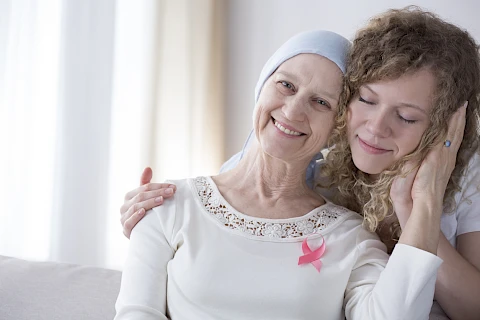
A breast cancer diagnosis can be a shocking and emotional event. It's a time filled with uncertainty, fear, and many questions. Family support can make things easier during this period. Seniors need the love, care, and understanding of their family members more than ever. Here's more information to guide family caregivers on how to support their senior loved ones through this challenging time.
The Diagnosis
When a senior is diagnosed with breast cancer, they may experience a range of emotions. These can include sadness, anger, fear, and confusion. You need to be patient and empathetic. Let your loved one express their feelings without judgment. Educate yourself about breast cancer. Understanding the disease, its stages, and treatment options will help you provide better support. You can find reliable information from healthcare providers and reputable websites.
Responding to the News
The initial reaction to a breast cancer diagnosis is crucial. The following steps can help:
- Listen actively: Let your senior loved one talk about their feelings and concerns.
- Communicate sensitively: Speak with kindness and avoid using medical jargon.
- Encourage open dialogue: Make it clear that it's okay to talk about fears and feelings. Emotional expression can be therapeutic.
Implications of the Diagnosis
A breast cancer diagnosis can lead to changes in daily routines and lifestyle. Seniors may need to adapt to new schedules, especially if treatments like surgery, chemotherapy, or radiation are required. Understanding the medical implications helps. Discuss treatment options with healthcare providers to make informed decisions. A strong support network, including family, friends, and healthcare professionals, can make a big difference.
Planning for Care and Treatment
Organizing care and treatment involves several steps:
- Schedule and attend medical appointments: Ensure that all appointments are kept and that your senior loved one feels comfortable.
- Coordinate with healthcare providers: Keep open communication with doctors and nurses to stay informed about the treatment plan.
- Explore home care options: Consider support services like those offered by Senior Helpers Southeastern Indiana, which can provide professional home care tailored to your needs.
Emotional and Psychological Support
Breast cancer can take a toll on a senior's mental health. You should look out for signs of depression and anxiety. Encourage participation in support groups where they can share experiences with others going through similar situations. Provide emotional support by being there, listening, and offering companionship. Small gestures of kindness can go a long way in lifting their spirits.
Practical Tips for Caregivers
Managing caregiving responsibilities can be challenging. Keep a detailed calendar to track medications and appointments. You should encourage a balanced diet to support overall health. Depending on the senior's health, light exercises can be beneficial. You should always check with your loved one's doctor before starting a new exercise routine.
Senior Helpers Is Here For You!
Supporting a senior through a breast cancer diagnosis requires compassion, thoughtful planning, and both emotional and practical support. Key points include practicing patience and empathy, maintaining open communication, understanding the medical aspects, carefully planning for care and treatment, and offering emotional encouragement. Caregivers should also prioritize their own well-being to provide the best support possible.
For professional assistance, reach out to Senior Helpers Southeastern Indiana. We are here to help families in New Albany, Madison, North Vernon, Jeffersonville, and Charlestown. Your loved one deserves the best care and support during this challenging time.